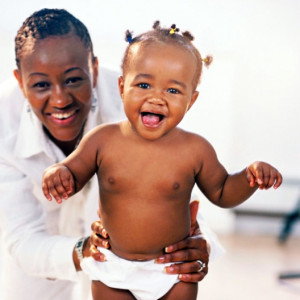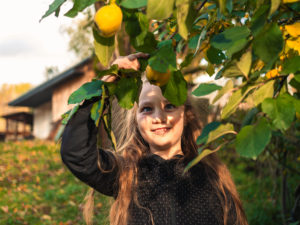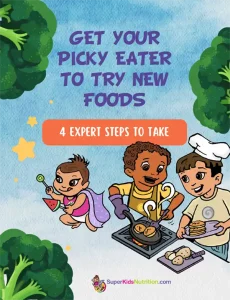
Food sanitation and safety are especially important when making your own baby food! Follow these tips for confidence in feeding your baby.
Kitchen Tips to Keep Your Baby Safe
- Don’t keep baby food in the refrigerator for longer than 3 days.
- Scoop out a portion to feed your baby and put remaining food back in the refrigerator – throw away food left uneaten in the dish. Always discard food that has been contaminated by bacteria from the baby’s mouth.
- Don’t leave baby food out for longer than 2 hours max.
- Store covered food in an airtight container in the freezer for up to 3 months.
- Wash hands before feeding baby and before preparing food.
- Wash all fruits/veggies before preparing.
- If reheating food in the microwave, always stir food after since hot spots can develop.
- Test temperature of food before serving baby (take a bite with a separate spoon).
- Avoid honey and corn syrup, which can harbor botulism (a bacteria that can make babies sick).
- Avoid drinking cow’s milk until 1 year of age, which can inhibit iron absorption (cheese, yogurt, milk-based formulas are ok).
- Watch cross-contamination when cooking with raw meats. For example, do not use the same knife or cutting board to cut the chicken as you do the vegetables.
Food Chokables for Babies and Toddlers
- Popcorn
- Peanuts (blend into nut butter for safe consistency) -however, peanut butter can still be a choking hazard. Once you’ve introduced a food that you know is not an allergen, blend this food with peanut butter for a smoother consistency.
- Raisins
- Whole grapes
- Uncut stringy meats
- Gum and gummy-textured candies/vitamins
- Hard candies/jelly beans
- Hot dog pieces
- Hard raw fruits or veggies such as apples, carrots, and green beans
- Fruit skins (such as apple or pear skins)
Updated 1/2017









